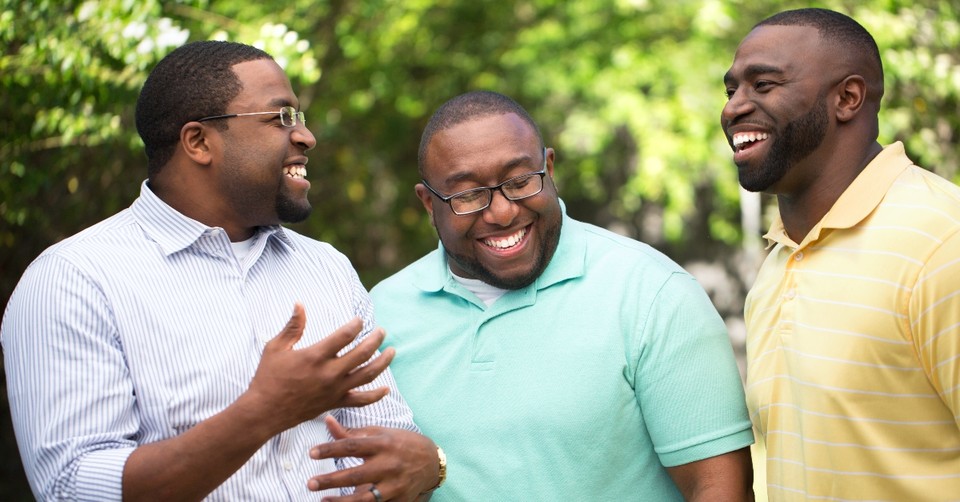What Is the Significance of Siblings in the Bible?

Brothers and sisters in the Bible enjoyed both sweet and bitter relationships with each other. There was conflict, and also reconciliation. What do their relationships with one another teach us about Jesus, “The image of the invisible God, the firstborn of all creation”? (Colossians 1:15).
Who Were the First Siblings in the Bible?
Cain was the firstborn of Adam and Eve and also the Bible’s first murderer. He and his younger brother Abel each made an offering to the Lord. “It is when the brothers make sacrificial offerings of their respective firstfruits [...] that the trouble starts,” comments Samuel Tongue.
Abel made an offering the Lord approved of. “Abel also brought of the firstborn of his flock and of their fat portions. And the LORD had regard for Abel and his offering” (Genesis 4:4). Meanwhile, God had “no regard” for Cain’s offering (v.5).
Although Cain offered a harvest from his labors, blood was required. Cain spilled the blood of his brother in a storm of jealousy and hatred. The Lord said to Cain, “You shall be a fugitive and a wanderer on the earth” (Genesis 4:12).
Esau was the firstborn, and he displeased God by scorning his birthright by selling it to Jacob for food. God was pleased to give his birthright to the second-born — Jacob (Genesis 25:29-34).
Jacob then tricked his father into also giving him his blessing, which he had intended to give Esau. Jacob successfully fled from his brother’s wrath to find safety with his relative Laban.
There was a reconciliation of a sort many years later when Esau and Jacob reunited. “Esau ran to meet him and embraced him and fell on his neck and kissed him” (Genesis 33:4). Jacob offered compensation; Esau provided forgiveness.
This is a loving reunion but with some hesitancy on Jacob’s side. Instead of meeting up with Esau again later, according to the older twin’s invitation, Jacob avoided deeper union and celebration. He exhibits repentance and relief but does not wish to renew their relationship.
God’s provision for Cain demonstrates that reconciliation starts with him: “the Lord put a mark on Cain, lest any who found him should attack him” (Genesis 4:15). The Lord meted out judgment, but he also protected Cain.
We do not know if Cain repented, but we can see here an example of how the Lord offers us the opportunity to do so if we are humble to confess and to receive forgiveness.
Siblings Are a Powerful Message of Reconciliation
Full reconciliation is not transactional but full of love and humility, which begins with a loving and obedient posture before God. Joseph provides the example, even though his story begins with him reaping the consequences of vanity.
Joseph boasted that he would become more powerful than all of his brothers, so they sold him into slavery. “Competitive models of female relationships also have fruits: selfishness, division, and destruction,” explains Sharon Hodde Miller.
Joseph withstood the forces of evil, which labored to lead him away from God. The Lord also softened the hearts of his older brothers, Leah’s sons, who had inherited that legacy of jealousy from their mother and of the hostility between their mother and aunt.
Judah pledged his own life in place of Benjamin’s as surety to Jacob for his safe return (Genesis 43:8). God blessed Joseph for his faith and perseverance. In the long run, he and the brothers reunited.
Joseph exclaimed to the brothers “do not be distressed or angry with yourselves because you sold me here, for God sent me before you to preserve life” (Genesis 45:5). This is a God-glorifying perspective on suffering and a celebration of reconciliation in the name and for the purposes of God.
Joseph’s story plays out over many years, offering a hopeful example of the ways in which God heals relationships between siblings when the hearts of those siblings are turned towards the Lord rather than being focused inward.
Sisters at Odds
Rachel was the beloved wife, and her children the favored children of Jacob. At first, she could not have children, while being fertile was all that Leah had to offer Jacob in order to try and earn his love.
The sisters, used as pawns by their father Laban to deceive Jacob into staying with him, were now locked in a bitter rivalry. “When the Lord saw that Leah was hated, he opened her womb, but Rachel was barren” (Genesis 29:31).
Meanwhile, “when Rachel saw that she bore Jacob no children, she envied her sister. She said to Jacob, ‘Give me children, or I shall die!’” (Genesis 30:1). One feels Rachel’s pain here: women in the ancient culture of God’s people were regarded as failures if they were not able to produce children.
Jealousy is a sin, however, which separates God from his people. Sharon Hodde Miller highlights how “the fruits of [competitive female relationships] are consistent with the character of his Enemy.”
She offers a contrast in the form of Christ-centered relationships between women. Here, “we see many wonderful fruits: encouragement, perseverance, faithfulness, courage, intimacy with one another, and intimacy with God.”
Conflict is inevitable, but Jesus is the model for all sibling relationships and every relationship. When Martha was at odds with Mary, Jesus mediated (Luke 10:41-42).
His rebuke to Martha is gentle, delivered personally and with tremendous love. “Now Jesus loved Martha and her sister and Lazarus” (John 11:5).
True Reconciliation in Christ
When siblings set their eyes on Christ, their interactions are full of grace, even when they disagree.
When they are at war within the family, there is chaos, which endures through the generations. “Thus says the LORD: ‘A voice is heard in Ramah, lamentation and bitter weeping. Rachel is weeping for her children; she refuses to be comforted for her children because they are no more’” (Jeremiah 31:15).
Wayne Jackson explains that the split between rival sisters’ children represents the split of Israel into two kingdoms.
These kingdoms disobeyed God and were taken into captivity. “Rachel’s tears were wiped away and the Messianic hope was revealed. [...] Those wise enough to seek refuge in him embrace the hope of everlasting life.”
Repentance and reunion between siblings — Esau and Jacob, Joseph and his brothers — could not ensure ongoing peace within the nation of Israel unless both parties set their Lord in the middle and sought to honor him by sacrificing their comfort and desires in return for God’s will in their lives.
Their sins as individuals and as a nation led them into the hands of enemies again and again because they turned away from God and, in so doing, from the service of one another.
The legacy of Genesis 3 always caught up with them in the long run, splitting sibling from sibling and dividing Israel from God. Human dysfunction portrays cosmic rebellion on a smaller scale.
Yet, as Christ grieved with Martha and Mary outside the tomb of their brother, Lazarus, Jesus prepared to reveal the way to eternal unity as a family under God; the way in which a believer’s experience of family would change in and through Christ.
Because he rose from the grave, believers from all backgrounds also die to their old selves and are reborn into the body of Christ, the Church, bound by their faith and eternally unified with countless siblings under one Father.
Mary, Martha would celebrate Lazarus’ return to life and the promise of living forever as part of the resurrected body of Christ.
One Big Family
“But to all who did receive him, who believed in his name, he gave the right to become children of God” (John 1:12). We will not go so far as to say the Church is currently one big happy family.
In heaven, however, we will be. The perfected family will sing praises together, honoring the name of Jesus.
For further reading:
What Does it Mean to Be in the Family of God?
5 Ways to Deal with a Toxic Sibling Relationship
What Can We Learn from Mary and Martha in the Bible?
Was Rebekah a Good Mother to Jacob and Esau?
Photo Credit: ©iStock/Getty Images Plus/digitalskillet


Originally published March 18, 2022.




